Two Bulgarians - Anton Pouliyski from "Drone ARENA" and Filip Panayotov from the Technical University in Sofia, and the student from Ukraine at "Angel Kanchev" University of Rousse Sergey Reshetinski are the winners in the First International Festival of Youth Scientific-Technical Creativity “Off We Go!” The forum was held in Sofia from 27 to 29 April under the patronage of the President of Bulgaria Rumen Radev. More than 100 scientific papers presented young inventors in several thematic sections: Aviation, Shipbuilding, Robotics and Innovation for the City.
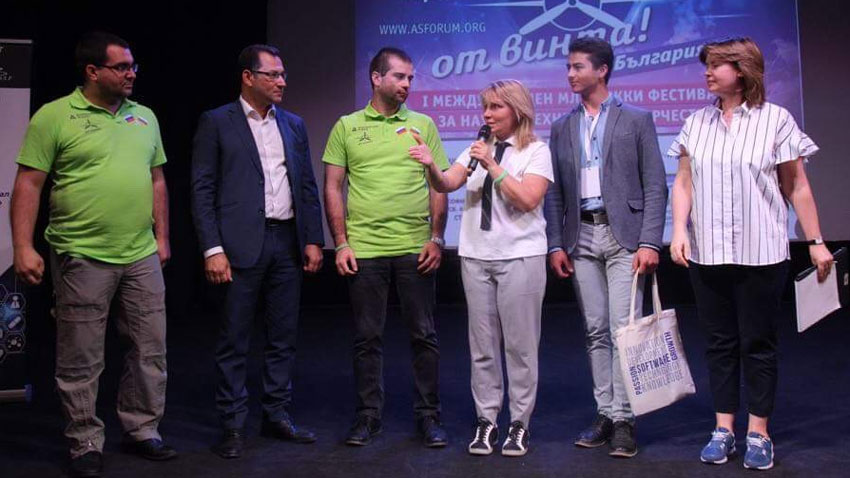
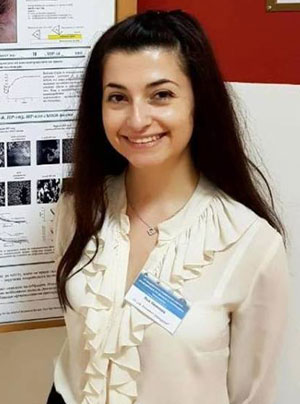 The “Off We Go!” festival has 13 years of history in Russia and apart from Bulgaria has also been presented in Vietnam, India and China. Its goal is to encourage young people’s interest in natural and engineering sciences. The winners in the forum held in Sofia will present their models at the international aerospace exhibitions in Russia – HeliRussia and MAKS. “The youngest Bulgarian participants were 8 years old from the group for Lego robots ‘Robo Bourborko’ in Kazanlak,” explains Yana Nencheva, chief secretary of the Aviation-Space forum.
The “Off We Go!” festival has 13 years of history in Russia and apart from Bulgaria has also been presented in Vietnam, India and China. Its goal is to encourage young people’s interest in natural and engineering sciences. The winners in the forum held in Sofia will present their models at the international aerospace exhibitions in Russia – HeliRussia and MAKS. “The youngest Bulgarian participants were 8 years old from the group for Lego robots ‘Robo Bourborko’ in Kazanlak,” explains Yana Nencheva, chief secretary of the Aviation-Space forum.
Keynote speakers in the Science & Education section of the festival included professors from technical universities in Russia and Bulgaria. This section’s program also offered master classes for pupils, screenings of popular science films and interactive demonstrations of science experiments.
Pilot Nikolay Kalaydjiev, who was member of the jury, awarded young inventor Yavor Hristov for his model of a solar powered aircraft „TwinRay Solar Aircraft“. Neven Boyanov from Veliko Tarnovo presented the project „Tinusaur“ as follows:
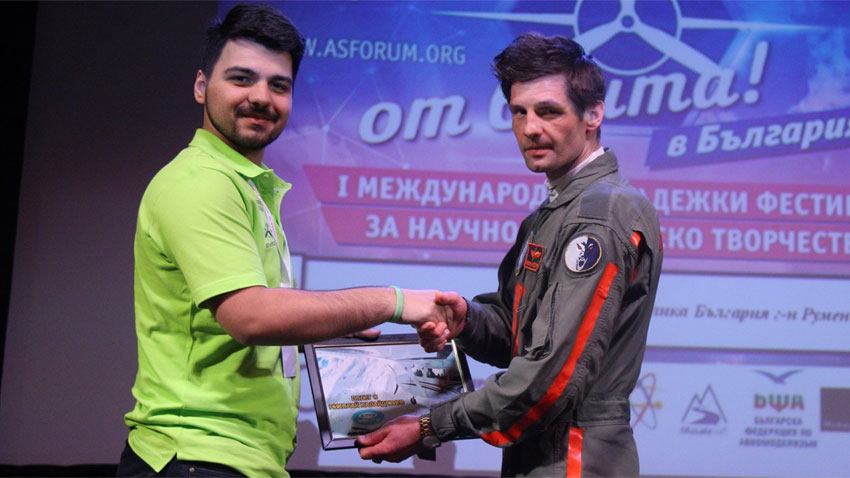
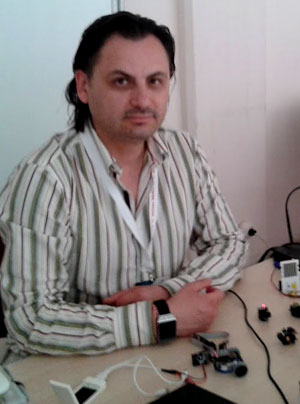 “This is a system for pupils and university students that allows them to learn electronics and robotics in a very funny and easy way. The project has been developed by a team of PhD students from Veliko Tarnovo University, colleagues from the companies that help us, pupils and university students. We demonstrate how with the help of electronic components and by programming them, we can create a game and more complex things. Across Bulgaria, not only in Sofia, there are many good specialized schools focused on mathematics, science and electronics. But if adolescents are really keen to develop their skills, I would recommend taking part in extracurricular forms where they can be trained in programming, robotics, and make much faster progress than their classmates who visit school alone. For some parents this is an investment in the future of their kids.”
“This is a system for pupils and university students that allows them to learn electronics and robotics in a very funny and easy way. The project has been developed by a team of PhD students from Veliko Tarnovo University, colleagues from the companies that help us, pupils and university students. We demonstrate how with the help of electronic components and by programming them, we can create a game and more complex things. Across Bulgaria, not only in Sofia, there are many good specialized schools focused on mathematics, science and electronics. But if adolescents are really keen to develop their skills, I would recommend taking part in extracurricular forms where they can be trained in programming, robotics, and make much faster progress than their classmates who visit school alone. For some parents this is an investment in the future of their kids.”
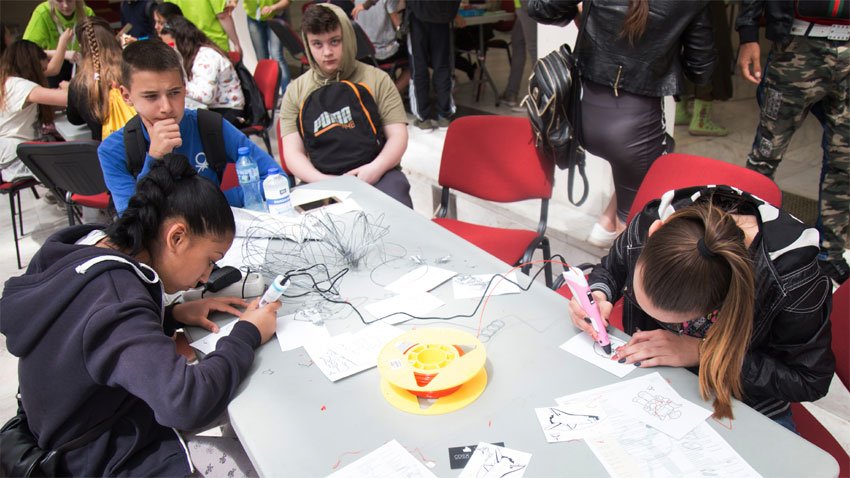
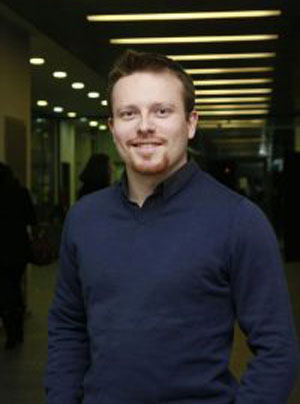 The University of Children organizes such extracurricular activities. Here is more about them from Yavor Kiryakov: “We try to inspire students to engage in natural and technical sciences from an early age – and in a serious way. Children after 4th or 5th grades are trained in electronics, robotics, chemistry, physics, biology, under the guidance of university professors and engineers from across the country. In fact, the projects of our young trainees are implemented in the industry. We want to make clear to children that there is a lot of work behind a serious project, but the efforts are rewarded in the end. One of the problems of society today is that it is after quick results. Recently I have noticed that in the career orientation of students the so-called business majors are mostly preferred based on the cliché that their graduates work with cash or are paid plenty of cash. The truth is that there are much more robust finances in the field of engineering provided one is well-qualified, creative and capable of defending his or her project.”
The University of Children organizes such extracurricular activities. Here is more about them from Yavor Kiryakov: “We try to inspire students to engage in natural and technical sciences from an early age – and in a serious way. Children after 4th or 5th grades are trained in electronics, robotics, chemistry, physics, biology, under the guidance of university professors and engineers from across the country. In fact, the projects of our young trainees are implemented in the industry. We want to make clear to children that there is a lot of work behind a serious project, but the efforts are rewarded in the end. One of the problems of society today is that it is after quick results. Recently I have noticed that in the career orientation of students the so-called business majors are mostly preferred based on the cliché that their graduates work with cash or are paid plenty of cash. The truth is that there are much more robust finances in the field of engineering provided one is well-qualified, creative and capable of defending his or her project.”
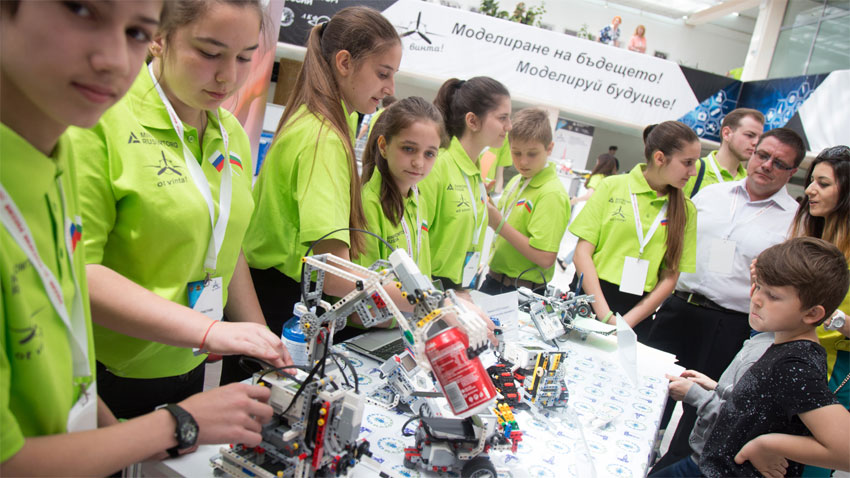
The Robotics Club at “Angel Kanchev” University of Rousse presented two models of aircraft made by students. The club’s leader, engineer Charvdar Kostadinov, says more:
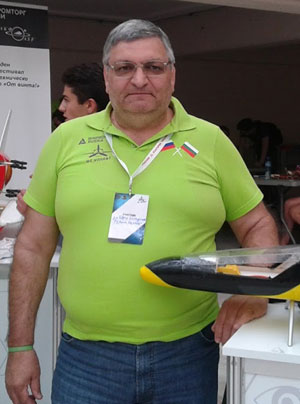 “At the Club we deal with all sorts of things related to robotics and automation. It has been in operation for 5 years and we have won over 100 medals and 20 cups at various competitions. Finding sponsors i.e. persuading businesses to invest in students is a very tough job. The problem is not with children, there will always be a core of brilliant minds keen to get involved with science and side by side them many other kids. After all the thirst for knowledge that goes beyond what is taught in school is infectious.”
“At the Club we deal with all sorts of things related to robotics and automation. It has been in operation for 5 years and we have won over 100 medals and 20 cups at various competitions. Finding sponsors i.e. persuading businesses to invest in students is a very tough job. The problem is not with children, there will always be a core of brilliant minds keen to get involved with science and side by side them many other kids. After all the thirst for knowledge that goes beyond what is taught in school is infectious.”
English Daniela Konstantinova
Photos: Elena Paskalova, BGNES, libraryThe building of the Bulgarian Center in New England, USA, which also houses the Bulgarian School and the Bulgarian Church in Boston, hosts one of the two election commissions in the area. "Pre-voting applications for this election overall..
People with motor and visual disabilities in Bulgaria face numerous difficulties in moving around and in their daily lives. But apart from purely physical obstacles, there are also obstacles at the level of access to information and administrative..
"I vote whenever I can and I'm in a place where there is a way to do it," the world-famous Bulgarian violinist and concertmaster of the Royal Concertgebouw Orchestra in Amsterdam Vesko Panteleev-Eshkenazy proudly tells Radio Bulgaria . And today, without..
The Professional Association of Robotics, Automation and Innovation s unites over 80 Bulgarian and international companies that have one global..
The votes in the early parliamentary elections on October 27 outlined an even more diverse parliament. The initial forecasts were for..

+359 2 9336 661
